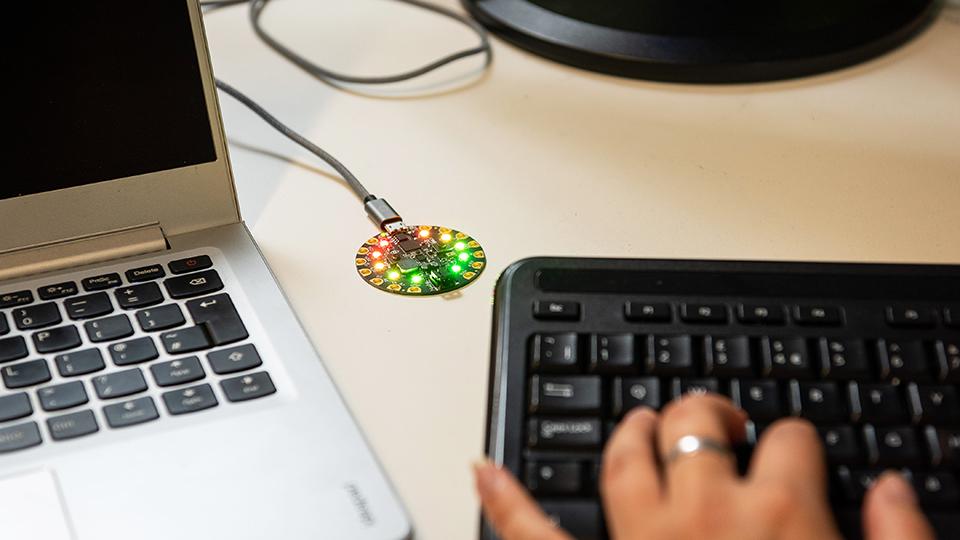Vibrating 'cybernudge' device may help foil cyberattacks
Primary page content
Technology inspired by exercise and lifestyle apps could hold the key to changing people’s behaviour to help prevent cyberattacks.

Adafruit technology will be used to make prototype 'cybernudge' devices. Photo: University of Bath
Researchers from the University of Bath and Goldsmiths, University of London are investigating whether a simple device that plugs in to a PC and signals when action is needed with gentle sound, lights or vibration could nudge people into better protecting their security, data and privacy online.
People routinely put off, ignore or forget cyber security measures such as changing passwords, updating privacy settings and locking computer screens. And traditional cyber security training is failing to galvanise people to act on straightforward security measures. Over the last five years the cost of cyberattacks is reported to have risen by 67%, with the majority of these data breaches being traced back to human error.
Dr Emily Collins, Research Associate at the University of Bath’s School of Management, said: “Humans are the weak link in cyber security. We know that people feel overloaded with data breaches reported in the news and overwhelmed about what they should be doing to protect themselves. Many of us know we’re not on top of security, but translating that nagging worry into positive action just isn’t happening. It’s leaving us all open to serious security threats.”
The researchers hope the project, with funding from the Home Office via the National Cyber Security Programme, will help to build better habits through a subtle desktop reminder designed to gently nudge people into action without it becoming an annoyance or distraction. The project will use Adafruit Circuit Playgrounds, which can be programmed to detect when people leave their desks for example and remind them to lock their screen through a sequence of lights, sounds or vibrations.
Dr Sarah Wiseman, lecturer in computer science at Goldsmiths, said: “The Adafruit Circuit Playgrounds are a fantastic opportunity to do some rapid prototyping with participants. The inbuilt functionality on the boards means that you don't need much experience with electronics to take a concept from idea to reality.
“I will be translating the findings from our research into design prototypes. These will then be tested in an office setting to see if we have effectively understood and successfully designed a “cybernudge” that can help people make better cyber security decisions. The goal is to use easily-sourced technology so that the final design can be shared, and anyone can benefit from the results, not just those taking part in the study.”
The research team, including Dr Joanne Hinds, Research Associate at Bath, is inviting people to take part in a creative element of the study by drawing their cybersecurity concerns and solutions. The findings will help the team to develop more innovative, creative ways to tackle cybersecurity problems. For more information, or to take part, visit the project website.
This story is adapted from an original University of Bath press release.